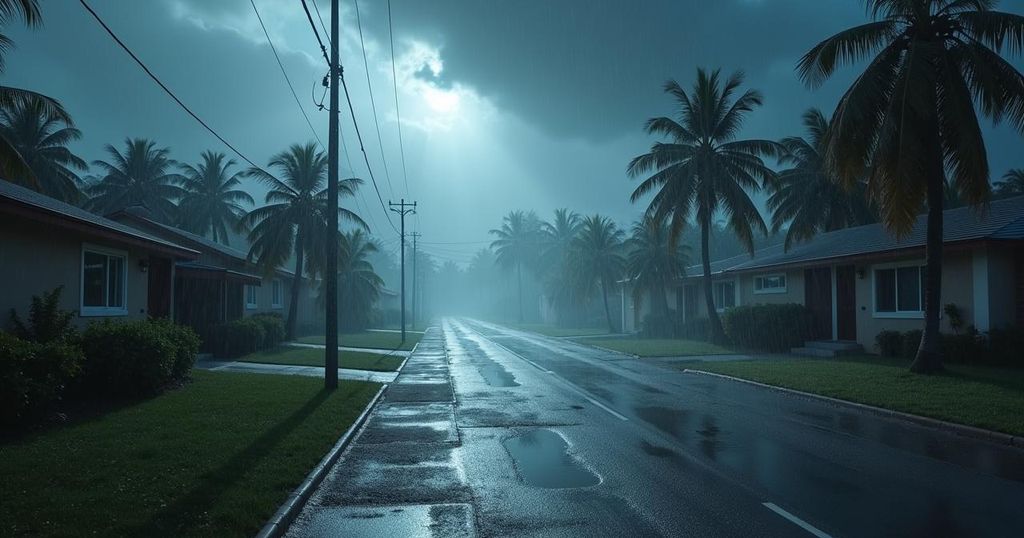Impact of Climate Change on Hurricanes: Insights from Helene and Milton
Recent research attributes a significant increase in rainfall and wind intensity of Hurricane Helene to climate change, with projections indicating similar outcomes for Hurricane Milton. The study suggests that higher sea temperatures, a direct result of global warming, are enhancing the likelihood and severity of such hurricanes, posing increased risks of catastrophic flooding, particularly in inland areas.
Recent research indicates that human-induced climate change significantly exacerbated the effects of Hurricane Helene, increasing its rainfall by approximately 10% and wind speeds by 11%. These findings were reported in a flash study released shortly before the anticipated landfall of Hurricane Milton along the Florida coast. The climate crisis has elevated ocean temperatures in the Gulf of Mexico by an average of 3.6 degrees Fahrenheit (2 degrees Celsius), thereby increasing the likelihood of fueling severe storms like Helene by 200 to 500 times, as our climate continues to change. Hurricane Helene, which caused catastrophic damage, made landfall in Florida producing record storm surges and winds of up to 140 miles per hour. The hurricane resulted in substantial inland flooding which claimed over 230 lives. Furthermore, Helene unleashed more than 40 trillion gallons of rain, a feat unmatched in meteorological history. The implications of these hurricanes extend beyond coastal areas, with inland flooding posing significant threats, particularly as the frequency of such intense storms is projected to rise. Statistically, storms of Helene’s magnitude were once considered to occur every 130 years; however, they are now believed to be approximately 2.5 times more likely. The World Weather Attribution (WWA) group has established a framework for examining the influence of climate change in extreme weather events. Their analysis utilizes advanced modeling and comparisons of weather data to assess impacts related to climate change. In a similar evaluation conducted by scientists at the Lawrence Berkeley National Laboratory, it was concluded that Helene’s rainfall was exacerbated by climate change, leading to incidents of increased precipitation in regions such as Georgia and the Carolinas. Experts warn that unchecked fossil fuel consumption will likely lead to more frequent and severe hurricanes, which carry the potential for devastating floods and destruction well beyond coastal regions. As climate scientist Kim Cobb notes, Helene and Milton are indicative of the challenges ahead if proactive measures are not taken to address climate change.
The article discusses the correlation between climate change and the increasing severity of hurricanes, specifically focusing on the recent cases of Hurricane Helene and Hurricane Milton. As climate change leads to warmer ocean temperatures, it intensifies weather systems, resulting in stronger wind speeds and higher precipitation levels. This phenomenon is further evidenced by a series of studies conducted by climate researchers and institutions which analyze the impacts of global warming on storm behavior. It highlights the urgent need for increased preparedness and resilience planning in the face of future hurricanes, as the statistics for these events continue to worsen due to ongoing fossil fuel consumption.
In summary, the evidence presented underscores the critical relationship between climate change and the heightened severity of hurricanes such as Helene and Milton. The increased rainfall and wind speeds resulting from anthropogenic climate change highlight the urgent necessity for immediate action in reducing fossil fuel reliance and enhancing climate resilience. As the frequency of such events escalates, it is imperative that proactive measures are implemented to safeguard communities from future disasters.
Original Source: www.kxnet.com




Post Comment